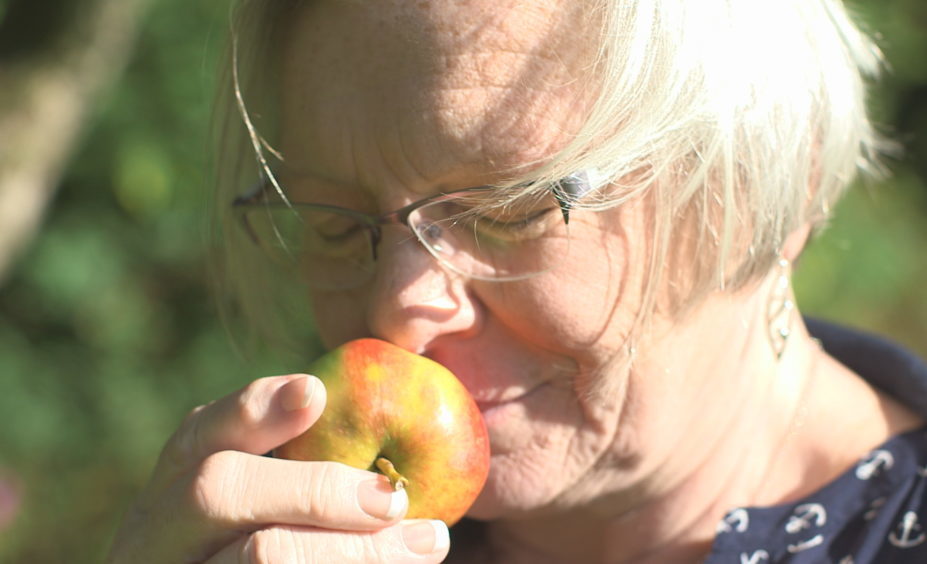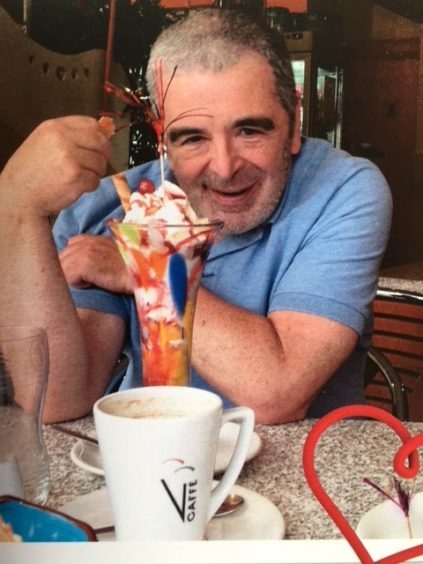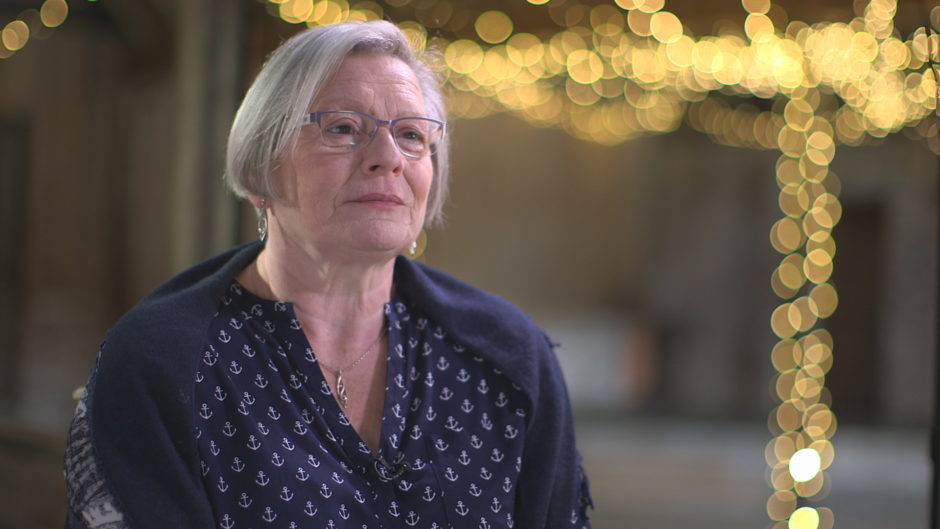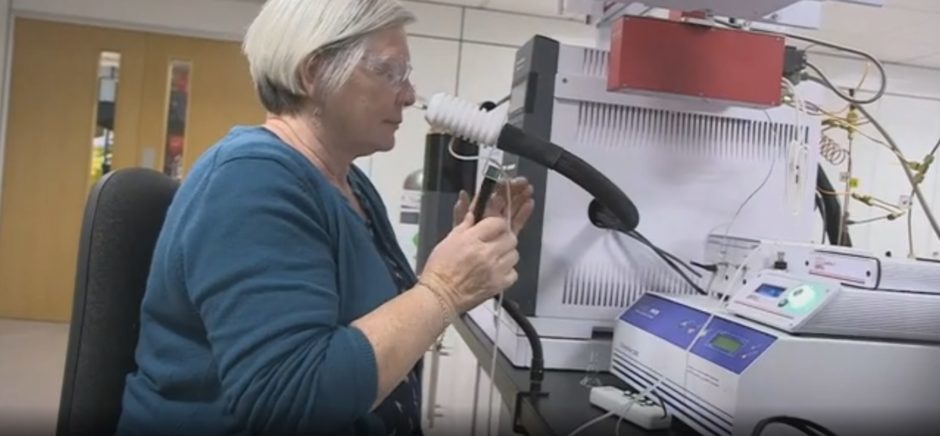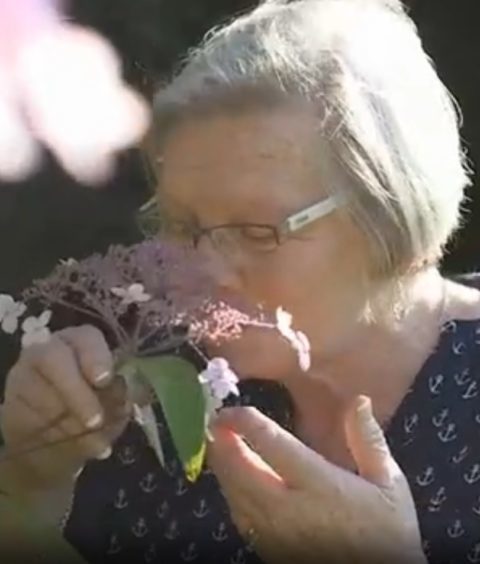As World Parkinson’s Day approaches, Michael Alexander meets Perth woman Joy Milne – the retired Dundee-raised nurse who can ‘smell’ Parkinson’s disease and who now also hopes to ‘smell’ TB in Tanzania.
She is the retired Dundee-raised nurse who can smell Parkinson’s disease.
But Joy Milne’s incredible abilities go way beyond simply having a very sensitive nose.
The 68-year-old, who lives in Perth, has the ability to detect Parkinson’s disease years before a doctor’s diagnosis.
She first came across her unusual gift 36-years ago when her husband Les – a former Dundee University-trained consultant anaesthetist – started omitting a “deep musky fatty sort of smell”.
At first, she accused him of not showering.
But everything changed some years later when the couple attended a Parkinson’s meeting in Perth – and Joy realised she could detect her husband’s smell coming from other people in the room.
Joy said: “That’s when I realised I could smell Parkinson’s.
“All through my nursing career I’d been able to smell diseases.
“I knew when people had liver cancer, problems with their kidneys and diabetes.
“But I didn’t realise other people couldn’t smell diseases like I could.”
Joy noticed Les’ change of smell when he was 32 – years before he developed any motor symptoms.
But he wasn’t diagnosed until he was 45 – five years before ill health forced him to retire from his senior role at Macclesfield District General Hospital.
Sadly, Les, who met Joy when they were both pupils at Dundee’s Harris Academy in the 1960s, passed away in June 2015 aged 65, 20 years after his official Parkinson’s diagnosis.
“It was a fairly aggressive form of Parkinson’s he had – he got dementia and became quite erratic,” she said.
“He had quite a long spell in Murray Royal. It was heart breaking to see.”
Parkinson’s affects one in every 500 people in the UK, around 127,000 in total and is caused by the deterioration of neurons in a certain part of the brain. People with the condition are left struggling to move and even speak.
But there is currently no definitive test and symptoms typically only start to show once more than half of the relevant nerve cells in the brain have already been lost.
Not only is the delay in diagnosis upsetting for people, it also prevents them starting treatment.
When researchers conducted tests with Joy they found she was able to identify people living with Parkinson’s from people without the condition by smelling skin swabs. Some had not even started to display any symptoms.
Scientists have now found 10 molecules that they believe Mrs Milne is sniffing.
It’s thought that dogs could be trained to sniff out the disease or doctors could use mass spectometry for early diagnosis.
Last week, Joy’s inspirational role was acknowledged when she was appointed honorary lecturer in analytical olfaction at Manchester University.
“The explanation for it is that I have synaesthesia,” she said.
“It’s an interconnection of all your senses. They don’t work separately.
“It’s hereditary. We know that. My sister sees in colours. The other sister has tremendous photographic memory for doing comic strips and stuff.
“But we represent just 3% of the world’s population and didn’t really get talking about it until this year when a couple from California came across. She was an MD and he was a neuropsychologist.
“I’m going to California later this year to have it investigated further.”
Scientists including Dr Tilo Kunath of Edinburgh University, have concluded that common non-motor symptoms of Parkinson’s “might lead to unique micro-flora and a unique odour” in sebum, which Joy can detect.
With World Parkinson’s Day on April 11, Joy believes more attention should be drawn to the growing prevalence of the condition worldwide – particularly amongst young people.
Drugs and new treatments have developed “tremendously” since the “smell research” began, she said, and following last year’s 200th anniversary of Parkinson’s being discovered, research has taken “great strides”.
She also praises the “dedicated and committed” researchers and scientists for all their work. But work still has to be done.
She added: “In our day I think when I trained (as a nurse) I saw two or three people with Parkinson’s in their early 70s/80s. They were not in their 30s.
“Yet we are seeing more and more. WHO and World Parkinson’s Congress (WPC) are now saying it’s epidemic in the world. When I went to the WPC seven years ago, the experts were speaking then about pollution and processed food being possible causes of the increase.”
“It’s quite a thought really isn’t it.”
Joy also hopes to be able to use her abilities to give early warning to other diseases.
This month she is travelling to Tanzania hosted by Apopo – a registered Belgian non-governmental organisation which trains Southern giant pouched rats to detect landmines and tuberculosis – to see if her nasal abilities can be used to identify tuberculosis (TB).
“I did look after someone with TB in Maryfield Hospital, Dundee when I was about 20,” she said.
“I’m quite good at bringing back olfactory memory from the brain.
“Of course we don’t have TB here anymore.
“But I can remember this smell when he was in the ward.
“In Tanzania there’s supposed to be a TB vaccination programme but the reality is children are not being vaccinated if they live in the middle of nowhere.
“It is epidemic in these countries.
“If I can help find a way for earlier non-invasive diagnosis of TB amongst children then that would be quite superb.”
